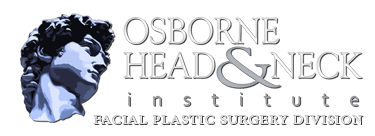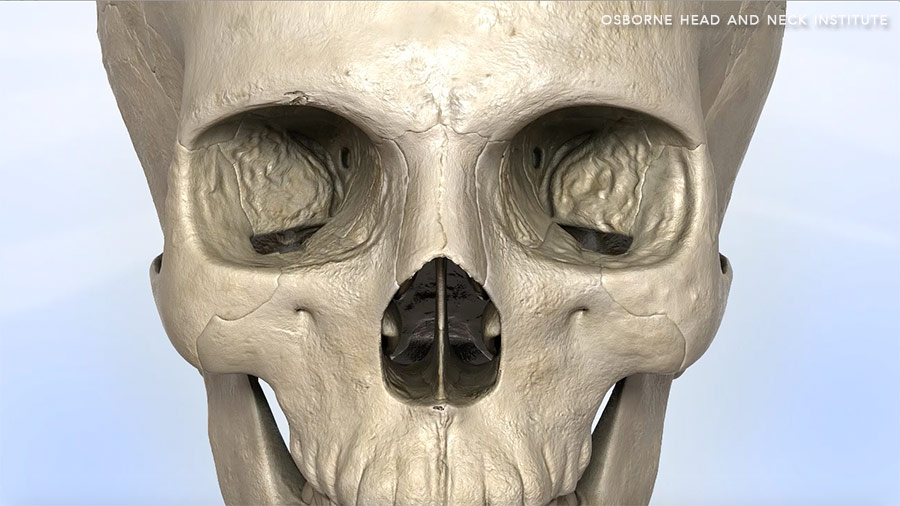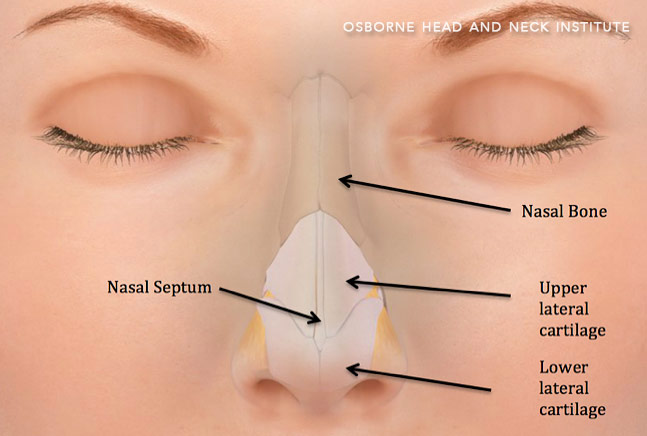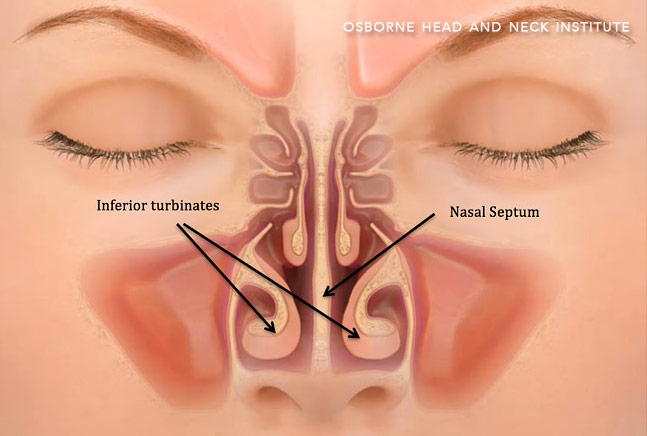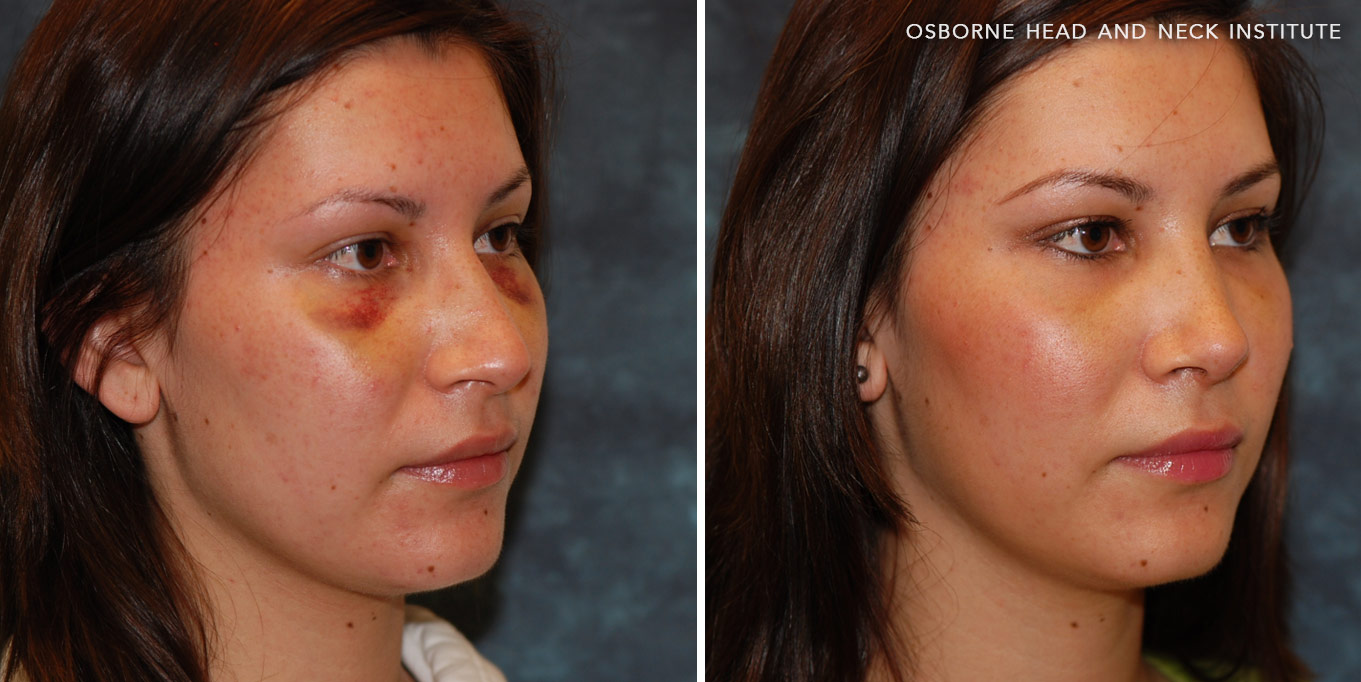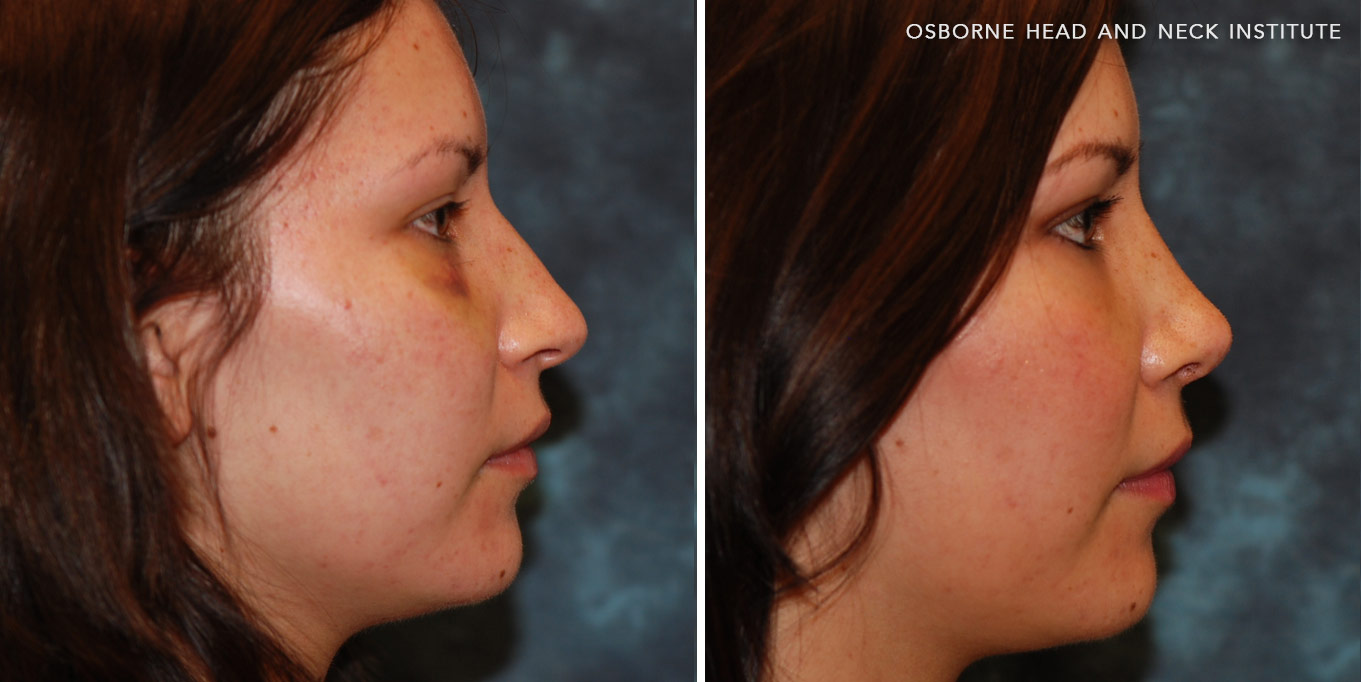The nasal bones are the most delicate bones of the external facial skeleton. They project from the maxilla and frontal bones and provide the stable foundation for the anteriorly projected nasal cartilaginous skeleton. Fractures of the nose can not only result in cosmetic changes, but also lead to functional concerns like chronic nose bleeds, a deviated septum, nasal obstruction, septal perforation, nasal valve collapse, and recurrent sinus infections. In fact, it is quite common to have permanent obstruction of the nasal passages after sustaining nasal trauma. Cosmetic changes include and hump on the nasal dorsum, projecting bony spurs, a twisted nose, and possible changes to the texture of the skin.
Nasal Anatomy
What is the nose made of?
The upper third of the nose is compromised of bone and the lower two-thirds of cartilage. The nasal septum is a midline structure made up of cartilage anteriorly and wafer thin bone posteriorly that provides support to the lower two-thirds of the nose. The septum extends posteriorly dividing the nose into the right and left nasal passages effectively segregating airflow between left and right sides on the nose. The septum is integral in normal respiration and humidification of inspired air.
What happens when the nose is broken?
Typically, a nasal fractures are associated with fracture of the nasal bones resulting in cosmetic and functional changes to the nose. Nasal fractures do not only effect the nasal bones and may cause injury to the nasal cartilage and septum as well. Both nasal bone and nasal cartilage injury may occur after a nasal “fracture”. Separation or tearing of the nasal cartilages and fracture and deviation of the nasal septum can also cause significant nasal dysfunction (deviated septum, septal hematoma, septal perforation) as well as cosmetic deformity. Nasal turbinates can also permanently swell and retain their enlarged size well after the initial trauma has healed, causing nasal obstruction.
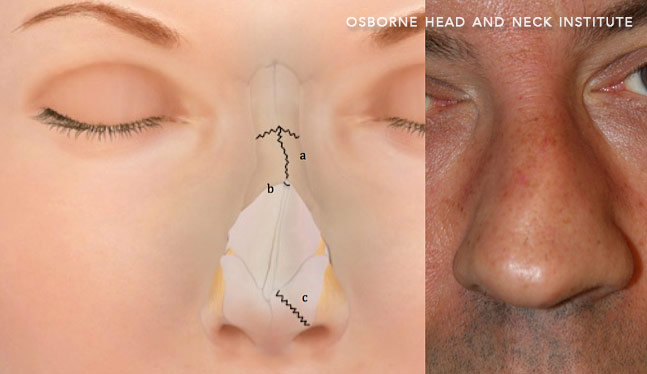
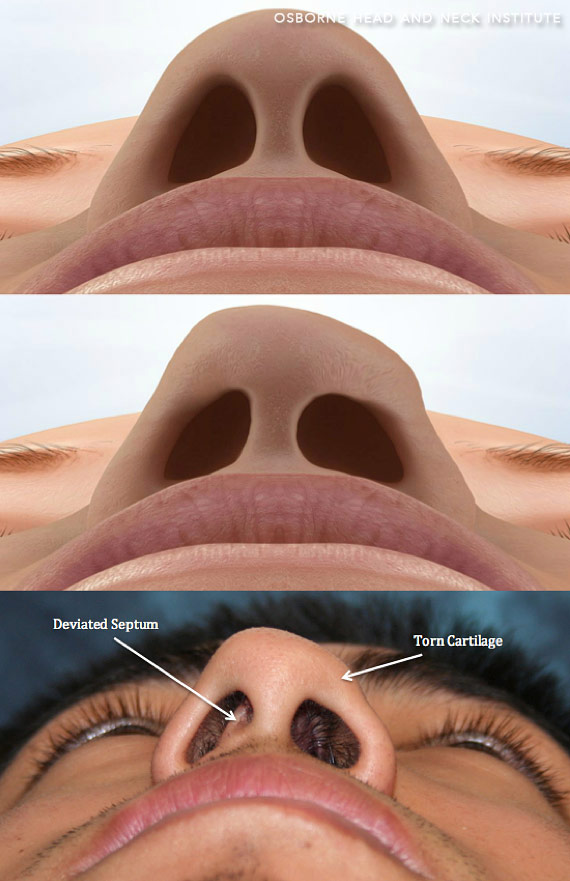
Broken Nose Diagnosis
How do I know if I broke my nose?
A nasal fracture is typically readily apparent to the patient. Besides the pain associated with the trauma, you may also experience an acute severe nosebleed and hear an audible “ crack”. This is usually followed by swelling of the nose, black and blue bruises around the eyes, and difficulty breathing through the nose. These telltale signs of a nasal fracture.
- Nasal deformity
- Acute nosebleed
- Nasal obstruction
- Nasal swelling and bruising
Swelling within the first several days after injury may obscure the appearance of a crooked nose. A crooked nose appears days or weeks later once swelling has subsided.
When should I see a doctor?
Prompt evaluation is mandatory for all cases of suspected nasal fractures. In addition to management of acute nose bleeds, it is important to seek medical evaluation in order to rule out potentially dangerous complications such as a septal hematomas. A septal hematoma is a potentially dangerous complication after nasal trauma where blood accumulates between the septal cartilage and the lining of the septum causing necroses of the underlying cartilage. Untreated septal hematomas may lead to nasal collapse, chronic nasal obstruction, infection and septal perforation.
Dr. Hamilton will drain blood from a septal hematoma to prevent infection or perforation of the nasal septum.
Broken Nose Treatment
How do I fix my nose?
Treatment of a nasal fractures is dependent on the extent of the trauma, underlying hidden damage, and degree of nasal deformity.
Uncomplicated cases (non-displaced fractures or hairline fractures) marked by no significant change in the position of the nasal bones, nasal cartilaginous skeleton, or underlying septum, close followup, rest, ice, and pain management during healing is the recommended course of treatment.
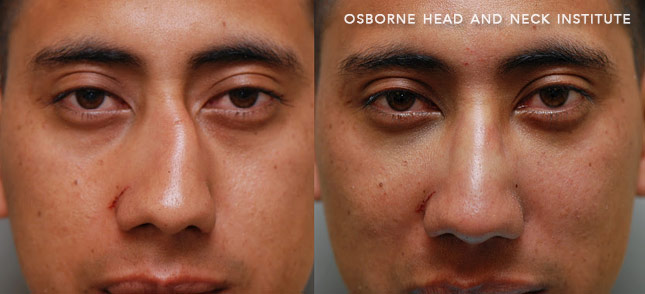
In more complicated cases where a broken nose needs to be repositioned, a few time dependent options exist.
If the time lapsed between the trauma and your initial visit to the doctor is less than two weeks (one week for children) then your nose may be repositioned using a quick and minimally invasive procedure called closed nasal reduction. This procedure can be done under mild sedation or local anesthesia and has very little recovery time. If more than two weeks have passed since your trauma it may be necessary to perform surgery to correct both the cosmetic effects of the broken nose as well as the functional breathing issues that may have arisen. This surgery is an outpatient procedure and the recovery time is usually one week.
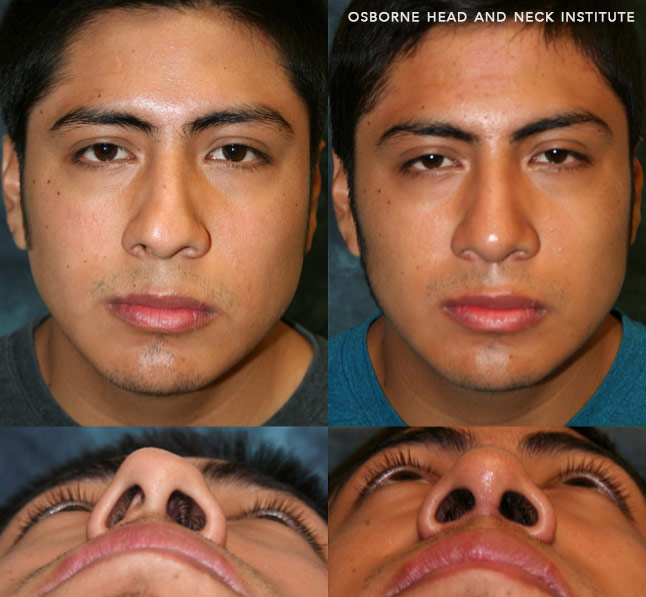
MEET our doctors TODAY. IN-OFFICE & VIDEO
APPOINTMENTS AVAILABLE
